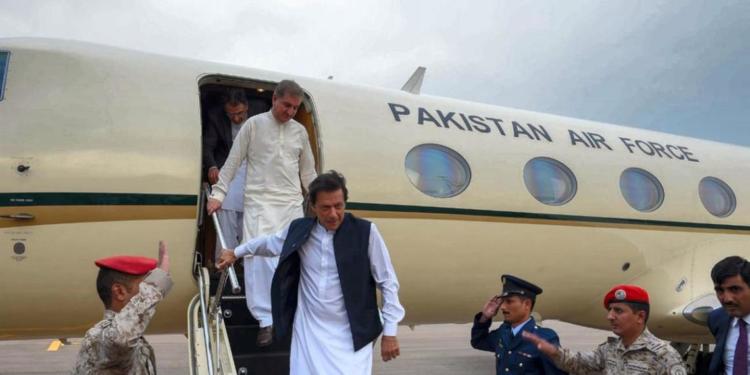After 5 months of adamancy, Pakistan on late Monday announced that they have finally opened its airspace for commercial airlines. Pakistan had intended this to be a ‘peace-making gesture’, ahead of Imran Khan’s visit to the USA. However, it has come to light that the real reason for this sudden act of apparent ‘selflessness’ is purely based on Pakistan’s deplorable economic conditions.
According to Pakistan daily Dawn, the Pakistan Federal Minister for Aviation Ghulam Sarwar Khan today stated that the Civil Aviation Authority (CAA) suffered a loss of Rs 8.5 billion because of airspace restrictions since February. He said, “It’s a huge loss for our overall [aviation] industry.”
This essentially proves that Pakistan’s gesture of goodwill was mere eyewash. In the wake of the Pulwama attacks, when India had launched Balakot air strikes in the country to eliminate the JeM terror camps, Pakistan in its exasperation had decided to close its airspace. The airspace closure was extended five times by the Imran Khan government ever since, the last one being on July 13th, valid till July 26th. Pakistan has now reversed its decision.
India had opened its airspace for all flights using Pakistani airspace in end May. On the other hand, Pakistan was adamant and Pakistan’s aviation secretary Shahrukh Nusrat said that the airspace will be reopened only after India “withdraws its fighter planes placed forward”. The country’s administration had also requested India to assure them that it shall not escalate, that is, repeat any such offensive, in order to reopen Pakistan’s airspace, to which no response was recorded from the Indian side.
The airspace closure resulted in massive losses for the Pakistan government at a time when it is already burdened with debt and a crippling economy. A loss of Rs 8.5 billion is something that they cannot sustain. Needless to say, the airspace closure stung the government of Pakistan directly.
With inflation skyrocketing over 8% to 9%, growth falling and a massive debt crisis looming on its economy, Pakistan desperately needs a flow of dollars into the country. With its forex reserves almost exhausted at $6 to $8 billion, and its exports failing to take off, Pakistan’s economy is crippled to the core. Moreover, Pakistan is already struggling in FATF’s grey list, because of which they have been having a hard time attracting foreign investments. A further inclusion in the blacklist, a plausible possibility, would positively make things worse for the country and its economy.
No reason was given for the sudden reversal of Pakistan’s decision to extend the ban. However, Indian diplomats were perceiving US pressure on Islamabad, which is why the decision took place a few days ahead of Imran Khan’s visit to Washington. It seemed that Imran Khan wanted to establish favorable ties with Washington and improving the relationship with India under the façade of ‘peace gesture’ was a way to please Trump. The air space had been shut off as retaliation to Indian airstrikes on the Balakot terror camps, and Pakistan might have an embarrassing time proving why exactly they were so perturbed with India’s action against terrorists when they themselves were purporting to be “anti-terror”.
While this may be valid, Pakistan’s more pressing worry was their economic crisis, as Dawn’s article indicated a loss of Rs 8.5 billion over 5 months. Pakistan’s crippling economy cannot possibly handle such a major loss. Moreover, India has already made it clear that neither will they de-escalate, nor will they engage in talks with Pakistan. With such a no negotiation policy, continuing the ban for eternity would be drained the country. Pakistan, therefore, decided to put their ego aside and finally realized their inability to bear the economic burden, that they should have 5 months ago.

























